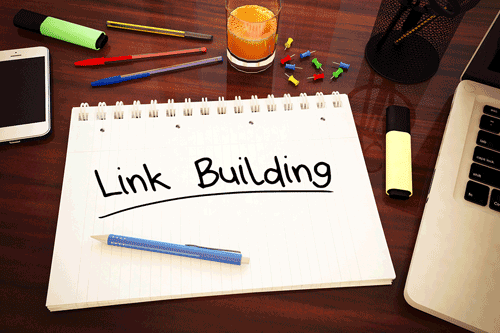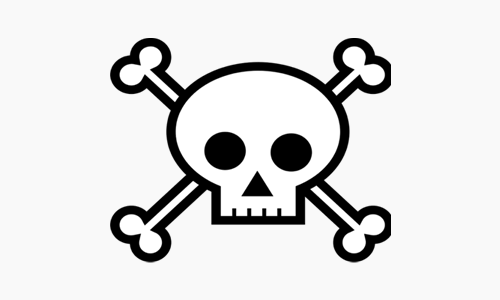There are a few phrases that have become a regular talked about subject. In search engine optimization you will hear a lot about Google Trust and Authority. Since Google is an ongoing battle to combat spam and "black hat" seo techniques, we now have a few more things to worry about.
What Is Google Authority?

Google authority is a theoretical way for Google to determine if you are a trustworthy site. You may wonder, how do I know if Google trusts my site? As there is no way to get a definite answer there are a few ways to get a good idea.
Let me show you:
There a few tools that have created their own number to determine the authority or trust of your site. All three of them are free to use their basic features, which does include a trustworthiness number.

Now you have your number, what does it mean? It doesn't mean that if you have a score of 40 and your competitor has a 20, you will not automatically rank higher than them. It just gives you an idea of where you stand against others in your industry.
How Do They Know?

For the last couple of years, we have had algorithms changes including Panda and Penguin. These were implemented to look for sites that have low trustworthy factors and lower their search engine ranking.
Google Panda looks at your site for pages that have thin content, copied from another source, or have bad grammar and spelling. If you have too many of these type of pages on your site. Google will determine that your site isn't a trustworthy source and lower your ranking.
Google Penguin has a similar approach. Instead of looking internally at your site, it will look at your external sources, aka your backlinking portfolio. Google will look at where your backlinks are coming from and how they are linking. If you have backlinks coming from untrustworthy sources, you once again are going to get lowered in your ranking.
What Determines Authority

As your onsite content can affect your authority, most of it comes from your external sources. Your backlink portfolio is what is really going to drive your authority.
For Example:
If you have a site and all you could see is their backlink portfolio. It has 1,000 links and most of them are from foreign sites, blog comments, and random directories. Would you visit that site?
What about a site that had 100 backlinks, but they were from Huffington Post, CNN, and CNET. Would you visit that site?
Most likely you would pick the site that has 100 backlinks from reputable sites. This is how Google looks at your site and determines how much it trusts you. If you external sources are low traffic sites, Google isn't going to trust yours. But if you have a good range of sources from already trusted sites, it will start to trust you.
Introducing the Trustworthiness Model

In an effort to clean up the garbage and bad linking systems of the black and grey-hat marketers. Google continually updates their algorithm and may soon be rolling out a new system of determining sites credibility. To actually fact check the posts on a site appearing on the search engine and rank them according to the amount of truth they provide to the user.
Currently Google determines a sites trustworthiness and reputation based on the number of related incoming links, the source of those links, as well as the popularity of a site on social media.
A team of Google researchers may be close to changing the model. The system they are developing will count the number of incorrect facts on a page using Google's own autonomous Knowledge Vault. We can only speculate coupled with the traditional ranking, will further help Google decide which sites make it to the top and which sites slide down into obscurity.
How Do I Increase My Google Authority?

A good place to start increasing your Google authority is to check to see if you may have been penalized by the Panda or Penguin update. If you have been penalized, this is the absolute place to start. Do a content audit and fix all pages that may be affected. Then disavow links any backlinks you may have that come from untrusting sources.
If you haven't been penalized or you have reversed the penalty, it now a backlink and social signal game. Not necessary increasing the number of backlinks, but getting backlinks from pages Google already trusts. There are plenty of link building trends that are still effective to increase your authority.
When doing this, start to engage with your users on your social media accounts. Having your users Like, Share, Plus, Tweet or anything else will help raise these factors and make your site stronger.
You can use the tools discussed above you find a great sources that you know Google trusts. But don't rely on it completely. If you can get a link from a site closely related to yours, and doesn't have a high "score". Don't worry about it. If you think it's a useful site, it probably is.
What Will Hurt Your Site?
There are a lot of factors that Google will check to factor in your site's ranking. But there are factors that they have deemed “bad” and you should try to stay away from.
Here is a more in-depth article about backlinks that have a negative impact on your ranking: Backlinks That Don't Really Work... Anymore

Here are a few techniques to watch out for:
Unnatural Backlink Growth – This is when your site receives 10,000 links one day, 2 links a month later, and another 5,000 the next week. These backlinks will have an exact match keyword linking to one particular page. This is a red flag to Google that you are doing unethical link building practices.
Buying Links – Don't buy links from other sites. Which this is a hard way for Google to decide what is and what isn't. If they do figure it out, bad things will happen.
Link Farms – These are sites that are interlinking for one main purpose. They all end up linking to one website, yours. This was a big technique people where using before Penguin took a lot of them down.
Comment Post – Another big technique before Penguin was comment links. This is when you would leave “Nice Article” with your link as your author's name. If you comment on a blog and do this, it's fine, you're not going to get penalized. It's when you have 1,000s of these all linking to one page.
Duplicate or Thin Content – As mentioned with the Panda update, pages that have low amount of content or is copied from another source. This took away a lot of article directory backlinking and guest posts. Also having bad grammer and/or spelling on your page will have Google think you are "spinning" content.
Future Updates

As we don't know what Google is cooking up for their next algorithm update. One thing you can be certain is that increasing your Google Authority and Trust to your site will be well worth your time. As this will protect you from future penalties.
There are basically three things to keep growing your authority. Write compelling content with no grammar and spelling errors, get backlinks from already trust sources, and increase your social shares with engaging users.
Do all of these and there will be nothing to worry about.
 WebHostDesignPost
WebHostDesignPost

What Do You Think?